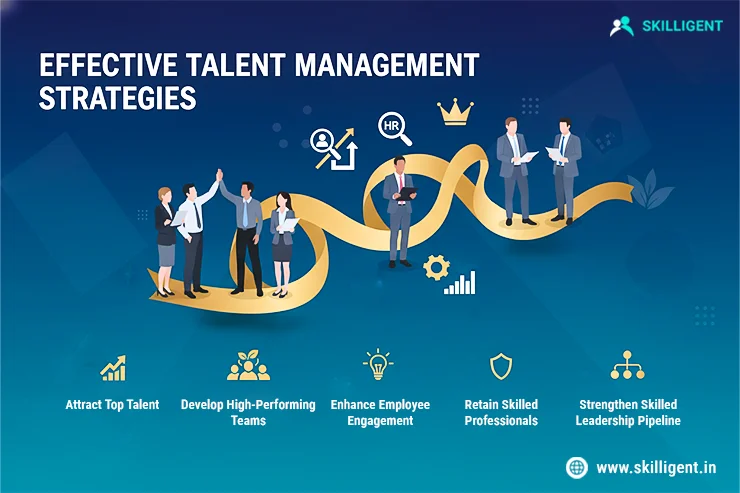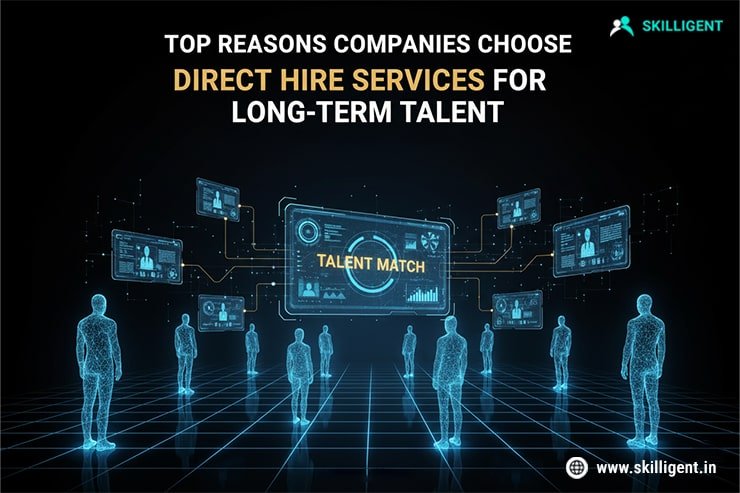This is a treasure chest for employers. Picking the right staff model will not only allow you to maximize your human resources to achieve your broader strategic ambitions, but it can impact your operational agility, cost, and access to talent. This blog compares permanent vs flexible staffing, and considers the characteristics, advantages and issues with each in order to assist you in determining what model works best for your organization.
Permanent Staffing: Establishing a Core Team
Permanent staffing means that you are hiring individuals directly on your company payroll. Permanent employees usually work on a full-time basis, paid a salary, and entitled to benefits. This type of model would suit jobs where a longer-term commitment is needed, in-depth knowledge of your company or its operations is important, and maintaining a good cultural fit is crucial.
Advantages of Permanent Employees
- Reliability and Fidelity: Permanent employees create even greater loyalty and commitment, which means a reduced turnover rate and the development of a strong internal culture.
- Retention of Organizational Knowledge: Permanent employees accumulate knowledge and expertise about your organization, this is particularly important for projects with lengthed duration and improves your workforce planning activities.
- Overall Cost-Effectiveness: While the initial costs of a permanent hire might be high, long-lasting benefits such as training and improved productivity mean decreased costs in the long run.
- Career Development: Invest in permanent, talented staff to create a very capable, high performing workforce, which betters organizational capability and also benefits your permanent employees.
Contract Staffing: Flexibility & Specialized Skills
Contract staffing or temporary staffing is the process of hiring for a defined time period or service. Frequently, individuals are employed by a staffing agency. This service offers great flexibility and many times allows specialized skills without any permanent commitments.
When You Should Use Contract Staffing
- Project work: Great for hiring people for short time projects, busy seasons or when you just need a specific skill set and only need that skill for a period of time.
- Short-Term Cost Savings: Contract workers usually have total rates, with no costs for workers’ compensation, or payroll expenses. Contract rates make it easy to perform a staffing cost analysis because of the lack of benefits and payroll taxes that are associated with permanent workers.
- Access to Niche Skillsets: When trying to get highly specialized talent for a temporary or urgent requirement, sometimes contract staffing allows you to get specialized people that the permanent recruitment process will typically take way too long.
- Mitigating Risk: Contract staffing allows your client to try an employee first, reducing the risks associated with hiring and letting them directly experience how well they perform initially. This is valuable when comparing permanent employment versus contract work.
In determining whether permanent or contract staffing is right for your business, it really depends on your company’s short- and long-term needs. However, one consideration is that permanent employees will create a strong foundation for your business and build continuity, while contract workers can create workforce agility to enable you to access specific expertise when needed.
Below are some more key points to consider while hiring:
- Long-term vs. Short-term Needs: In many cases, a permanent hire is needed to fill a core role with a long-term contribution. For projects or roles that are temporary or have varied workloads, contract staffing is more nimble.
- Costs/Value: Permanent staff will likely represent a more sizable commitment of resources in terms of staffing dollars compared to contract staff. However, you need to evaluate the total costs of staffing over a given timeframe. Contract staff will typically seem more expensive hourly than permanent staff. Permanent employees will accumulate collective knowledge (and often intellectual capital). Therefore, permanent employees can generate long-term value.
- Available Talent: Contract staffing will allow you to fill qualified professionals with skills you may need only for short periods of time. Permanent staffing is a better option for creating a team of staff you want to work with over the long-term.
- Workforce Planning: By integrating more than one model, you can maximize the value of both. In many cases, a hybrid approach would work best. Permanent staff could fulfill operational needs while contract or part-time staff could help with project-based work.
In the end, the best staffing model is dependent on your goals. By comparing the pros and cons of permanent and contract staffing, you can build a solid workforce.
Whether you are seeking a permanent staffing approach or contract staffing help, or your whole employee staffing strategies, you need to understand these staffing models. If you would like more information or specific staffing solutions, give us a call today!







